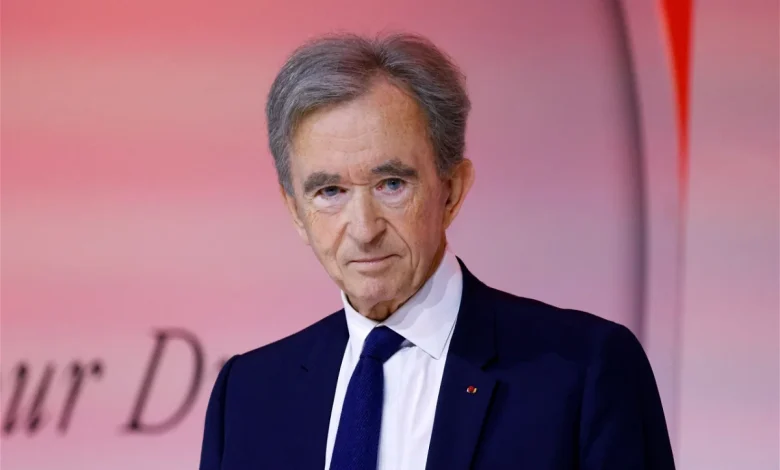How Bernard Arnault overtook Elon Musk to reach No. 1

For the second year running, luxury goods magnate Bernard Arnault is the richest person in the world, ranking number one on Forbes’ World’s Billionaires list.
He’s $22 billion richer than in 2023, thanks to yet another record year for his luxury goods conglomerate, LVMH, which owns an empire of 75 coveted brands including Louis Vuitton, Christian Dior and Sephora. The group announced $16.5 billion in net profit on $94 billion revenues for 2023, sending its stock 5% higher over the past year.
The 75-year-old tycoon has an estimated $233 billion fortune on the annual Forbes list, giving him a $38 billion lead over his closest challenger, Elon Musk, who retained second place this year.
That gap is wider than last year, when he outpaced Musk by $31 billion. While Musk’s high-profile tribulations in 2023 dented his wealth—most notably, when a Delaware judge voided his 2018 award of Tesla stock options in January—Arnault had a much better twelve months. In April 2023, LVMH became the first European company to reach a market capitalization of $500 billion.
This year marks Arnault’s 28th consecutive appearance on Forbes’ World’s Billionaires ranking. He first made the cut in 1997, with an estimated $3.1 billion fortune.
That number, adjusted for inflation, would be about $6 billion today—meaning Arnault has added more than $200 billion to his net worth thanks to the growth of LVMH over the past two decades.
He quickly climbed the ranks, vaulting into the top 20 richest by 2005 (worth $17 billion) and then becoming the world’s fourth richest in 2011 (worth $41 billion).
His fortune took a gigantic leap in 2018, rising to $72 billion from the prior year’s $41.5 billion–though he still ranked No. 4. In 2023, he overtook Elon Musk to become the world’s richest person on Forbes’ yearly list for the first time.
While known for pricey acquisitions of luxury retailers including Tiffany & Co. and collaborations with high-profile stars like Rihanna and her Fenty Beauty, LVMH made fewer deals last year.
It bought a majority stake in Château Minuty, the second-largest producer of rosé wines in France’s southern Province region, and picked up Los Angeles-based luxury eyewear maker Barton Perreira in November.
A month later, it sold 80% of cruise line operator Starboard & Onboard Cruise Services to a group of private investors. The transaction amounts were not disclosed for those deals.
Amid a quieter year, Arnault moved to cement his succession plan–which is to say, to keep family control. In January, he proposed adding his sons Alexandre and Frédéric to LVMH’s board, where they would join his two eldest children, Antoine and Delphine.
Shareholders will vote to approve or reject the nominations on April 18. That plan builds on an earlier move he made in 2022, when he reorganized his holding company, Agache, to give equal stakes to his five children. The kids’ control of Agache—which owns most of the family’s shares in LVMH—combined with their presence on LVMH’s board ensures that the Arnaults will maintain control over the world’s largest luxury empire for years to come.
Forbes attributes the value of all the family’s LVMH shares to Arnault rather than to his children, given his control over the company.
If all goes to plan, the Arnault children will carry on their father’s legacy. “Our father is very competitive. He doesn’t like losing,” Frédéric Arnault, the second-youngest of his children and the CEO of LVMH’s watches division, told Forbes in 2019. “This is something he’s transmitted to us.”
(Forbes)





